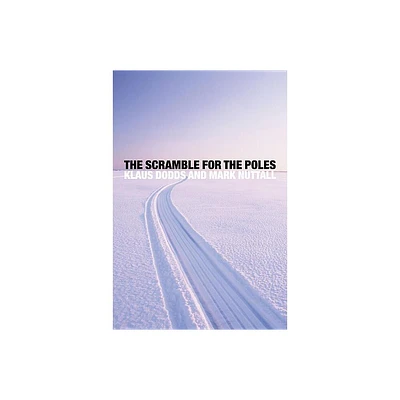Home
The Scramble for the Poles: The Geopolitics of the Arctic and Antarctic / Edition 1
Loading Inventory...
Barnes and Noble
The Scramble for the Poles: The Geopolitics of the Arctic and Antarctic / Edition 1
Current price: $26.00


Barnes and Noble
The Scramble for the Poles: The Geopolitics of the Arctic and Antarctic / Edition 1
Current price: $26.00
Loading Inventory...
Size: OS
*Product Information may vary - to confirm product availability, pricing, and additional information please contact Barnes and Noble
In August 2007 a Russian flag was planted under the North Pole during a scientific expedition triggering speculation about a new scramble for resources beneath the thawing ice.
But is there really a global grab for Polar territory and resources? Or are these activities vastly exaggerated? In this rich and wide-ranging book, Klaus Dodds and Mark Nuttall look behind the headlines and hyperbole to reveal a complex picture of the so-called scramble for the poles. Whilst anxieties over the potential for conflict and the destruction of what is often perceived as the world's last wildernesses have come to dominate Polar debates and are, to some extent, justified, their study also highlights longer historical and geographical patterns and processes of human activity in these remote territories. Over the past century, Polar landscapes have been probed, drilled, fished, tested on and dug up, as their indigenous populations have struggled to protect their rights and interests.
No longer remote places, or themselves 'poles apart' from one another, the contemporary geopolitics of the Polar regions has lessons for us all as we confront a warming world where access to resources is a concern for states, big and small.
But is there really a global grab for Polar territory and resources? Or are these activities vastly exaggerated? In this rich and wide-ranging book, Klaus Dodds and Mark Nuttall look behind the headlines and hyperbole to reveal a complex picture of the so-called scramble for the poles. Whilst anxieties over the potential for conflict and the destruction of what is often perceived as the world's last wildernesses have come to dominate Polar debates and are, to some extent, justified, their study also highlights longer historical and geographical patterns and processes of human activity in these remote territories. Over the past century, Polar landscapes have been probed, drilled, fished, tested on and dug up, as their indigenous populations have struggled to protect their rights and interests.
No longer remote places, or themselves 'poles apart' from one another, the contemporary geopolitics of the Polar regions has lessons for us all as we confront a warming world where access to resources is a concern for states, big and small.


















